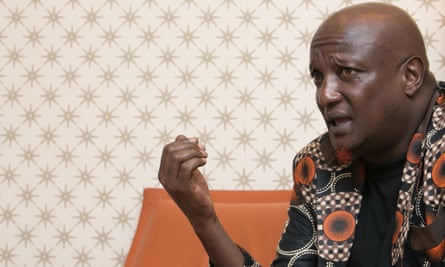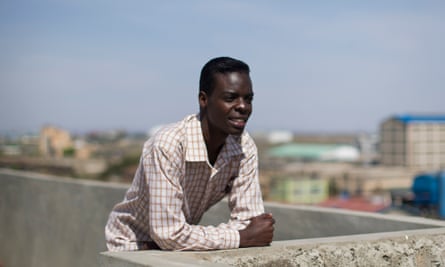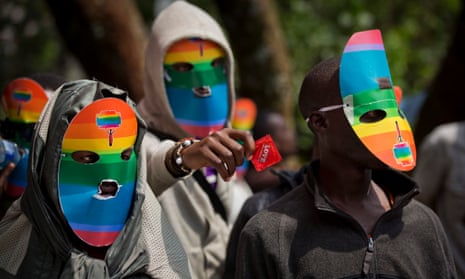Patrick Murage’s relatives have started to look at him oddly. He is 36, unmarried and no one can remember the last time he brought a girlfriend home.
“I am at the age where I am supposed to have a job, a family of my own, a wife, and children too,” he says. He does have a family though. A secret one. “I have been seeing someone for the past four years and we are thinking about moving in together.” Patrick thinks this someone might be the one, but sadly only close friends are able to celebrate this news with him.
It has been impossible for him to break this news to his family, workmates or close business associates. “I am the first-born son of a church elder, I no longer go to my childhood church and I am gay. I don’t think my parents are ready for such news,” he says.
In spite of Kenya’s capital Nairobi positioning itself as the most progressive city in east and central Africa, the country still remains intrinsically homophobic.
In 2010, rights group Human Rights Watch wrote a letter to the then Kenyan president Mwai Kibaki, condemning a string of attacks against individuals suspected of being homosexuals and the health workers who worked among them.

A year later, a gay club in downtown Nairobi was the scene of a grenade attack that led to the death of one patron. However, it is not clear whether the grenade attack was an act of terror or prejudice against the LGBTI community since the authorities blamed the attack on terror group al-Shabaab.
Last year, the popular night club Club Envy, which is perceived as friendly by the gay community, was raided by local police leading to the arrest of more than 40 patrons. During the same period a prominent politician Adan Duale, while speaking in parliament said homosexuality is a crime as serious as terrorism in modern day Kenya.
Now, however, there are finally signs of change. Since 2012, the National Gay and Lesbian Human Rights Commission has applied five times to register under the nation’s Non-Governmental Organisations Co-ordination Act. Up until now, it has always been rejected on grounds that Kenya’s penal code criminalises gay and lesbian associations. But on 24 April this year, Kenya’s high court ruled in favour of the gay community, arguing that refusing to register the organisation was an infringement of the constitutional rights of association for the LGBT community. In the highly anticipated ruling the judges said that the law cannot be interpreted with a bias towards religion or the perceived moral standing of society. Kenya’s office of the attorney general and the non-governmental registration board had previously barred the LGBT community from forming a lawful organisation.
The verdict handed down by three high-court judges stated: “The board and the Attorney General rely on their moral convictions and what they postulate to be the moral convictions of most Kenyans. They also rely on verses from the Bible, the Quran and various studies which they submit have been undertaken regarding homosexuality. We must emphasize, however, that no matter how strongly held moral and religious beliefs may be, they cannot be a basis for limiting rights: they are not laws as contemplated by the Constitution”.
“It was clear from the beginning that the board was acting in a manner that is unconstitutional and unlawful, and amounts to an abuse of power,” said Dennis Nzioka and LGBTI activist based in Nairobi. “The ruling didn’t do anything special. It just upheld the bill of rights.”
Murage thinks that this is a victory, albeit a small one for his community. “It is these little victories that eventually count,” he says.
Yet he believes the ruling, although a blessing, has also opened up debate in many parts of the country about homosexuality and fears that there may be backlash. “Now the gay community will be under an even larger microscope. The church is talking about us. Parliamentarians are talking about us. Even the deputy president is talking about us. None of these have nice things to say about us,” he says.
Soon after the ruling, Kenya’s deputy president William Ruto gave a speech at a church service in the capital, condemning homosexuality: “We would stand with religious leaders to defend our faith and our beliefs. We would not allow homosexuality in our nation, as it violates our religious and cultural beliefs”. The deputy president’s views may seem outlandish, but sadly reflect the felling of a large percentage of the population.
A 2013 survey by on Global Attitudes and Trends by the Pew Research Center revealed that 90% of Kenyans were against homosexuality. The survey goes on to say: “Publics in Africa and in predominantly Muslim countries remain among the least accepting of homosexuality. In sub-Saharan Africa, at least nine-in-ten in Nigeria (98%), Senegal (96%), Ghana (96%), Uganda (96%) and Kenya (90%) believe homosexuality should not be accepted by society”.
“But the numbers are changing,” Nzioka says. “Increasingly, our members are getting spaces, particularly in urban centres, where they can associate freely but of course with some bit of judging from society,” he says.
Some, like Club Envy are in the middle of Nairobi’s Central Business District. Others, such as the Gypsy Bar, are in the Westlands area, the city’s unofficial party district.
It is no longer unheard of to meet a same sex couple at both high- and low-end Nairobi night clubs, or for public figures to come out and speak up on gay rights. Last year, Kenyan novelist and short-story writer Binyavanga Wainaina released a previously unpublished chapter addressing his sexuality from his critically acclaimed and award-winning 2011 memoir One Day I will write About This Place.

In that lost chapter he says: “I, Binyavanga Wainaina, quite honestly swear I have known I am a homosexual since I was five. I have never touched a man sexually. I have slept with three women in my life. One woman, successfully. Only once with her. It was amazing. But the next day, I was not able to.” A Nairobi-based gospel musician, Joji Baro has also publicly announced his homosexuality.
“All these things further our cause. We don’t want any special treatment. We want the same treatment as others and it is encouraging to see people outside activism come out,” Nzioka says, but points out that many more people are still locked in their closets, living double lives, afraid of what society would think of them should they come out. “Some are afraid of losing the status in society, their wealth and many have and continue to be blackmailed over their sexual orientations.”
Kenya’s LGBTI community still has a lot of work to do. But at least conversations are happening both within and outside the gay community. LGBTI activists can now be seen on prime-time TV advocating for their rights. Mainstream newspapers are dedicating space to the LGBTI debate. In some parts of the capital, there is commendable co-existence between heterosexuals and homosexuals.
But many still don’t feel confident enough to publicly declare their orientations. “The previous generation died with their secrets. My generation is facing theirs. Hopefully, the next generation will not have any,” Murage says.
Join our community of development professionals and humanitarians. Follow@GuardianGDP on Twitter.

Comments (…)
Sign in or create your Guardian account to join the discussion